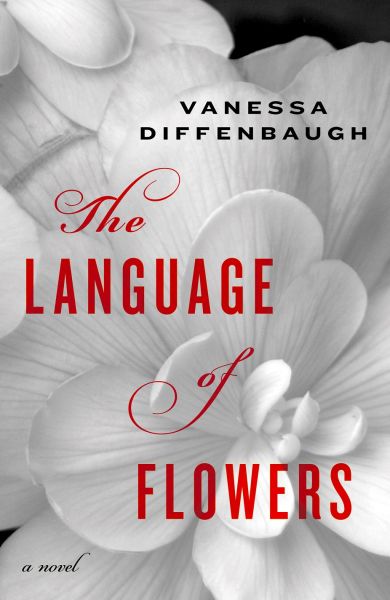 Synopsis:
Synopsis:
Victoria Jones does not know her actual birthday because she was abandoned by her birth parents. Court records reflect that she was about three weeks old when she became a ward of the court and Meredith Combs was appointed her case worker. During her childhood she bounced from one foster home to another. Finally, she was sent to live with Elizabeth, a solitary woman residing on her family’s ranch north of San Francisco. Elizabeth promised to adopt Victoria, referring to her as her daughter and vowing that she would never leave or abandon her. There, amid Elizabeth’s fields of beautiful flowers and with a dictionary given to her by Elizabeth, Victoria learned the language of the flowers, used in the Victorian era to express emotion and sentiment. But at the age of ten, Victoria was removed from Elizabeth’s care and placed in a group home.
On her eighteenth birthday, Victorian was emancipated and placed in a halfway house where she had just three months to find a job and begin supporting herself or face eviction. With no marketable skills, no high school diploma, and no definable goals for her future, Victoria spent the three months cultivating flowers in her room and wandering the San Francisco streets. Alone and destitute, Victoria begins sleeping in McKinley Park, a beautiful oasis in the midst of the bustling city.
A chance meeting with Renata, owner of the little flower shop called Bloom, provides Victoria a chance at a career and normal life. But Victoria is haunted by her memories of Elizabeth and the real reason she was removed from Elizabeth’s care. And in the flower market where she accompanies Renata in the early morning to purchase flowers, she encounters a mysterious flower vendor. Surprisingly, he speaks the same language as Victoria — the language of flowers. Soon Victoria learns his real identity and his connection to her past. Can she overcome the power of the secret she has been hiding for so many years, learn to forgive herself and others, and allow herself to be loved so that she can finally learn what it is like to have a real home?
Review:

Victoria Jones is one of the nameless, faceless street people that we all see every day as we go about our daily routines. The Language of Flowers examines how Victoria came to be homeless, sleeping in a park while wandering aimlessly around San Francisco during the day, eating tourists’ leftovers in order to survive. A chance meeting with Renata brings something Victoria hasn’t experienced for many years — hope. She offers Victoria the opportunity to work for a few hours and earn some cash that allows Victoria to check into a hostel for a few nights and purchase some food. Renata, a Russian immigrant, recognizes Victoria’s intellect and talent, testing her gradually to determine if she is also trustworthy. Because of her life experiences, however, Victoria trusts no one. Especially not herself.
Diffenbaugh explores Victoria’s fragile psyche by detailing, in alternating chapters, the events that are currently unfolding, juxtaposed against what took place during the time that Victoria lived with Elizabeth. As Victoria develops a loyal customer following at Bloom and demand for her beautiful floral arrangements grows, she recalls the time she spent believing that Elizabeth would live up to her promise to adopt her and Elizabeth’s attempts to reconcile with Catherine, the sister from whom she had been estranged for fifteen years. Victoria knows the real reason that the adoption was never finalized and she was placed in the group home, even though no one else does. Even as she longs for and misses Elizabeth, the woman who almost became her mother, she cannot allow herself to hope that they could be reunited. Victoria has no self-esteem — she believes that she deserves every bad thing that has happened to her and, most importantly, that she will never have a real home.
Diffenbaugh explores Victoria’s inability to receive and accept love from others in a starkly straightforward, heartbreakingly tender manner. She also reveals the devastating results of a childhood spent moving from one temporary living arrangement to another. As the two stories of Victoria’s past and present are revealed, the pace of the story quickens, the suspense building as the revelation of Victoria’s secret nears. For all of her flaws, Victoria is a deeply empathetic and sympathetic character. Her core strength and desire to be loved, even though she believes she is wholly unlovable, places readers squarely in her corner, hoping that her journey will lead her to acceptance, redemption, and peaceful happiness.
The Language of Flowers received justifiably enthusiastic reviews. It is a work of quiet beauty, a powerful story about a timeless, universal theme told from a decidedly fresh and timely vantage point. That it is Diffenbaugh’s first published novel makes it all the more remarkable.



3 Comments
I’ve read this book too. It is a fabulous story.
I can’t wait to read my copy of this one. All of the reviews have been so awesome. Glad to read your positive thoughts as well. Nice review. 😛
I like what the story is about. The title itself also attracts me to read this quite interesting book. Thanks for the post! =)